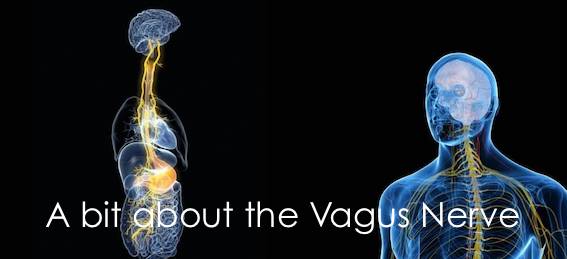Today’s post is about the vagus nerve, an integral part of the body’s nervous system.
So, what is it and what does it do?
The Vagus nerve, or wanderer nerve, is classed as the tenth cranial nerve. It is the longest and most complex of the cranial nerves. Running from the brain, through the neck and down to the abdomen it connects to all the vital organs, making it an integral part of the autonomic nervous system. This means that it takes care of the things that we don’t think about, like heart rate and sweating. As one of the main connections between the brain and the gastrointestinal tract, it also sends information about the state of the inner organs to the brain. It’s fair to say that it has its hand in almost every function of the human body and yet it is hardly ever spoken about in medical circles.
What can stem from the vagus nerve being out of tune?
This nerve is part of the major information network of the body, so it is easy to see how an imbalance can contribute to some health issues. Digestion, blood pressure and mood issues are the most commonly recognised to be linked with the vagus nerve system. However, there are some conditions that are less common, like the effect on skin sensations, mucous production, swallowing ability and immune response.
There are several conditions including acid reflux and bloating, to dizziness, mood or swallowing problems or even high blood pressure, that could be linked to issues with the vagus nerve system.
Fortunately, the vagus nerve is self-regulating and with some stimulation, it can reset itself to optimal functioning.
How is the vagus nerve helped to reset?
Researchers are studying vagus nerve stimulation as a potential treatment for a variety of conditions. Some of them include treating depression, helping to regulate emotions, reducing blood pressure and heart rate, as well as, treating headaches and migraines.
Nerve stimulation can be done in many ways, including surgery, where a small device is implanted to provide electrical stimulation directly to the nerve. It works by sending stimulation to the areas of the brain that lead to seizures and affect mood.
Of course, we don’t all want or need surgery, so there are easier, daily practices to keep the nerve in peak form. These include meditation or mindfulness practice, singing out loud (although gargling has the same effect if singing is not your thing). Taking probiotics will be helpful as well, due to this nerve also being linked to the gut microbiome. Other ways are exercise and massage and listening to uplifting music. Another technique is cold-water emersion and an easy way to do this is by using only cold water for the last 30 seconds of your daily shower.
If you think that you would like to know more about this system and how it may be affecting your body, talk to your chosen health professional.
We hope you have found this information interesting,
Till the next post,
Live clean n prosper.
Reference sources – Britannica – National Library of Medicine –

